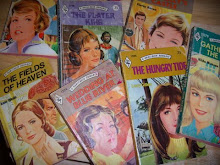So we watched the rest of the Importance of Being Earnest, which I found surprisingly entertaining. The more modern version that was done really isn't that bad either if you're into that sort of thing. Parallels between Oedipus and Earnest continue to be made. Both of them were foundlings and consequently orphans throughout their lives. Neither really know the whole truth of who they are for the majority of their adulthood in fact. While one is comedic and one tragic, this alone can bring them together as was pointed out today. Life is suffering according to Buddhaic traditions. There is a lot of truth to that, however pessimistic it may sound. However out of the most sorrowful of sorrows comes none other than the unexpected humor. Laughter emerges when all hope seems lost and there is no way out. But alas, through this newfound comedy comes a kind of relief, a new perspective permitting us to let go and cease our position as a the victim. How unlikely it is that two completely different emotional circumstances could actually provoke one another. Opposites attract in many ways it seems.
The two stories are well known and liked by many despite their dramatically different endings. Whether it is gorged out eyeballs or multiple lovers embracing, there is something to take from each. Reading about tragedy puts things in an important perspective. Without the ability to see the world in a tragic sense, we are ignorant to the full truth reality has to offer. Pain and suffering, at least in this world, are a necessary and inevitable part of the how things go. Comedy is not lost either, even with the multiple burdens we carry. Perhaps it is with tragedy that makes comedy so funny. We want to laugh and be happy as a distinct slap in the face to that of the tragic (and vice versa). If we have to endure the morbid and awful parts, then when the time comes to find humor we will. And with the experience of the polar opposite, that humor and joy will be amplified and appreciated in an entirely different way. It seems likely that one cannot exist without the other. It is a roller-coaster ride of feelings and emotions that each and every is subject to. The distinction should be appreciated so the difference might be noticed and we can reflect for ourselves which is preferable and why.
Defining ourselves by what we do, or our professions.
Common unhappiness vs. hysterical misery.
All memories are still somewhere in our unconsciousness.
We know everything about ourselves, but also about everyone else through the collective consciousness.
We are only here for the moment anyway.
Classic are especially contemporarily relevant.
Tragedy in terms of its formality and generality.
People make comedy. The more people produced, the more comedy.
Plot: methos. What is necessary to make the play.
Ideas of knowing and not knowing who you are. What is it that defines who you are?
What tit means to give up on God.
theodicy- vindication of divine attributes
anagnorises - (in ancient Greek tragedy) the critical moment of recognition or discovery, esp. preceding peripeteia.



















No comments:
Post a Comment